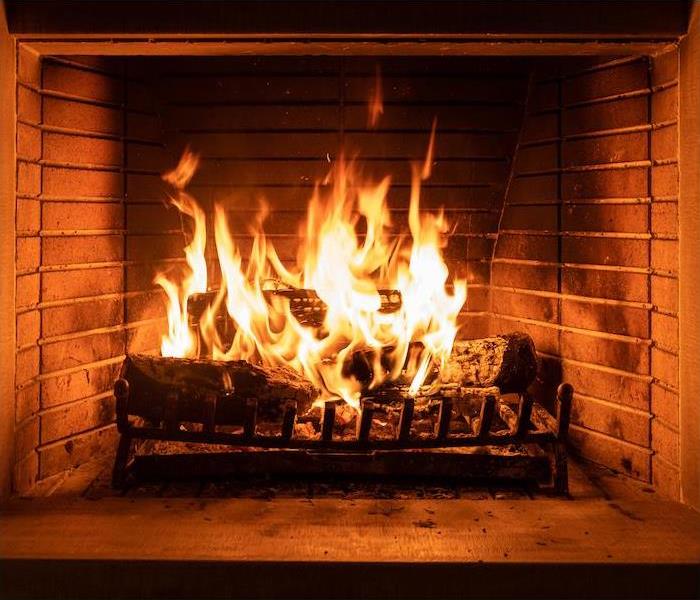Winter Fire Safety Basics | SERVPRO of Talladega, Clay & Randolph Counties
1/16/2024 (Permalink)
 Fire safety is a top priority for us at SERVPRO of Talladega, Clay & Randolph Counties this winter. Keep your home safe with these helpful tips!
Fire safety is a top priority for us at SERVPRO of Talladega, Clay & Randolph Counties this winter. Keep your home safe with these helpful tips!
As winter fully sets in, it gives us the perfect excuse to curl up under a blanket and wear all the fuzzy clothes we want. Even if you aren’t a fan of the cold season, there is nothing quite as relaxing as a crackling fire in the fireplace and a warm home.
While it may be comforting, keeping our homes nice and toasty also leaves us vulnerable to potential house fires. The number of fires rises dramatically during the winter, with many of them due to the improper use of heating equipment. This doesn’t mean you can’t sit back and enjoy the glow of a fire. With a few simple safety steps, you can stay cozy all season.
Having a fireplace not only provides a comforting way to end your day, it can also be a wonderful secondary source of heat. While we don’t have them often, when winter storms blow through they often knock out power.
Fireplaces come with risks, though, when they aren’t used correctly. Wood-burning fireplaces should be cleaned after each use, removing ash and any other remaining debris. Chimneys should be professionally cleaned and inspected at least once a year to avoid creosote buildup.
Make sure you don’t have anything flammable too close to your fireplace. That might mean cutting back on some of your mantle decorations.
If your fireplace is electric or gas, take a look at the connections and check for signs of aging every few months. You should have at least one smoke detector and carbon monoxide detector in the room with your fireplace—and it’s never a bad idea to keep a fire extinguisher close as well.
Alabama winters can bring pretty wide varieties of temperatures, sometimes all in the same day. This makes space heaters a great option for those days that you want to avoid heating the whole house. Space heaters are a common source of fires, however, responsible for nearly 1,700 every year.
Make sure when you run your space heater it is on a flat, level surface with three feet of open space all around it. Teach your children to steep clear of them when they are on, and take steps to protect your pets from getting too close as well. Check the cord before you plug it in for any fraying or other breaks, and always plug space heaters directly into the wall.
Give your heater room to work. Avoid putting it too close to the couch or your bed—and never plug a space heater into an extension cord or power strip. Make sure your heaters are off when you leave the room, especially if you are headed to bed for the night.
While almost every space heater you can buy is going to come with some safety features, there are a few specific things you want to ensure the best possible outcome in your home. If your space heaters are more than five years old, consider upgrading to get safer unit.
Research the company that made the heater. They should be considered reliable and be certified, as well as carry pretty strict testing standards for everything they sell. Any space heater you use should have automatic shut-off features that kick in both when the unit is tipped and when it has run for a length of time.
Cords on space heaters should be at least six feet in length and should feel sturdy. Never leave a space heater unattended.
When you care for your home, you can stay cozy and warm all season long. If something does happen, with one call to SERVPRO of Talladega, Clay & Randolph Counties, we can have your home put back together quickly.
A quick fire damage restoration is just a phone call away. Call SERVPRO® for immediate assistance.




 24/7 Emergency Service
24/7 Emergency Service